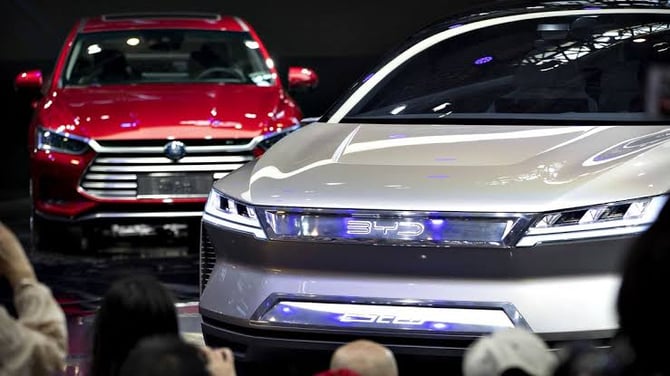EU Confirms Steep Tariffs on Chinese Electric Vehicles

The European Commission has confirmed the imposition of steep tariffs on Chinese-made battery electric vehicles (BEVs) as of July 5th, following a nine-month investigation that revealed extensive subsidies throughout China's BEV supply chain.
These subsidies, identified from raw material mining to shipping, allow Chinese producers to sell BEVs at significantly lower prices compared to European-made vehicles, where energy and labor costs are much higher. The influx of low-cost Chinese BEVs, which saw their market share in Europe rise from 3.9% in 2020 to 25% by the end of 2023, poses a significant threat to the EU industry, potentially jeopardizing over 12 million jobs.
The tariffs, which vary based on the parent company, annual turnover, and the amount of subsidies received, are intended to neutralize the competitive edge granted by these subsidies. The new duties will be added to the existing 10% rate, with Chinese BEV producers who cooperated in the investigation facing a 20.8% tariff, while those who did not cooperate will see a 37.6% tariff.
What Does This Mean For Me?
The tariffs' introduction comes amid concerns from countries like Germany and Hungary, which have significant economic ties with China, about the potential negative impacts on their automotive sectors. Meanwhile, France and Italy support the tariffs.
The Commission's decision reflects deep-rooted concerns about China's subsidized competition, reminiscent of the impact on the EU's solar industry. European leaders stress the importance of fairness in global trade to protect industries and livelihoods, highlighting the high stakes involved in this significant trade dispute.
More News
.webp)
Japan’s Rate Shift Is Rippling Through Global Bond Markets
2 weeks ago

China’s Growth Engine Stalls as Consumers and Investors Pull Back
2 weeks ago

Egypt’s Recovery Gains Traction as Household Pressure Lingers
3 weeks ago

OECD Warns AI and Tariffs Will Test the Global Economy
1 month ago

Zero Tariffs, Higher Drug Bills as US and UK Reset Pharma Trade
1 month ago

Catastrophe Bonds Go Global as Climate Risk Meets Yield Hunting
1 month ago
.webp)
Canada Shields Steel and Lumber Industries From Tariffs
1 month ago

Trump Drops Selected Tariffs in Response to Inflation Pressures
1 month ago